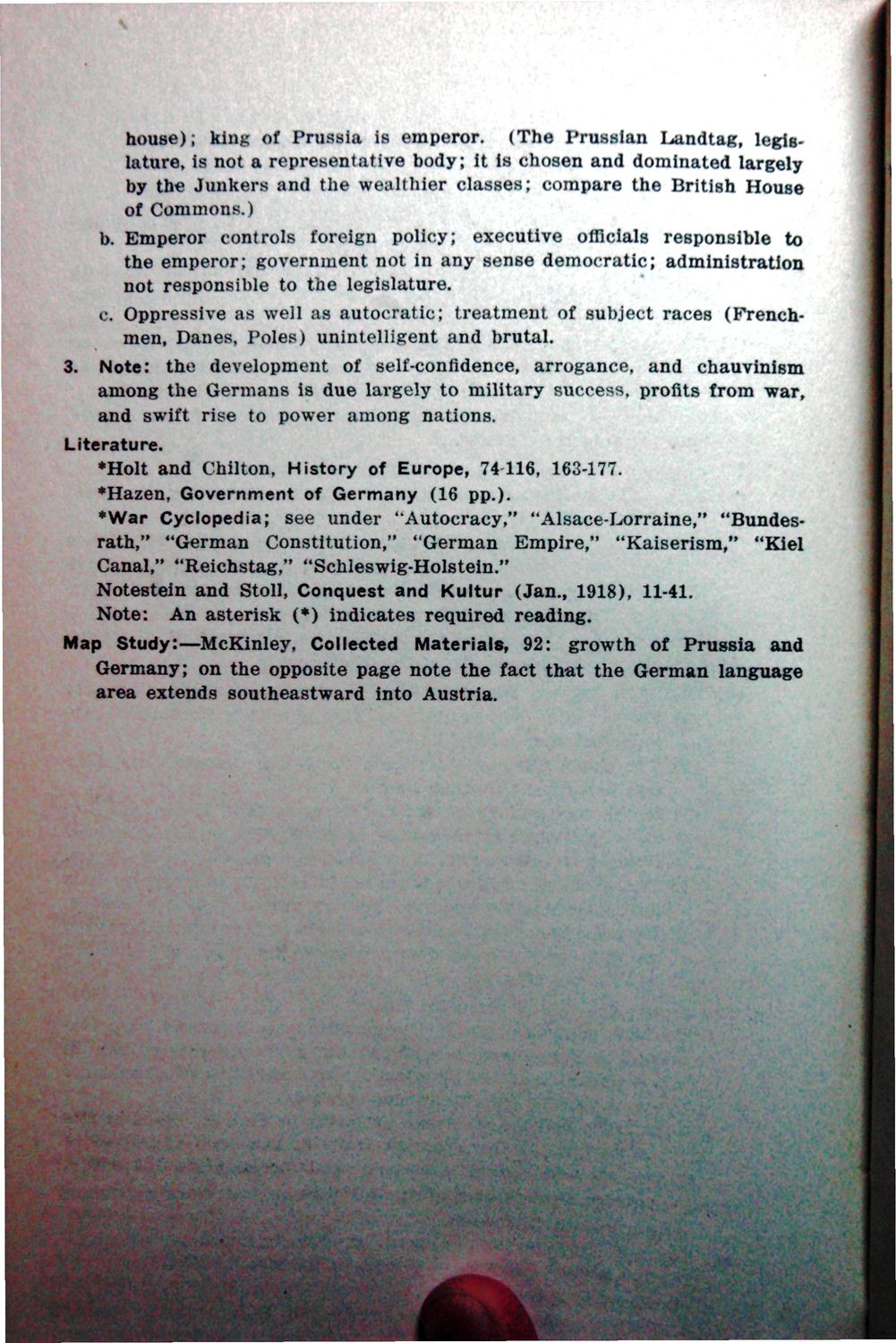| |
| |
Caption: War Publications - WWI Compilation 1923 - Article 49
This is a reduced-resolution page image for fast online browsing.

EXTRACTED TEXT FROM PAGE:
house); king of Prussia is emperor. (The Prussian I^andtag, legislature, is not a representative body; it is chosen and dominated largely by the Junkers and the wealthier classes; compare the British House of Commons.) b. Emperor controls foreign policy; executive officials responsible to the emperor; government not in any sense democratic; administration not responsible to the legislature. c. Oppressive as well as autocratic; treatment of subject races (Frenchmen, Danes, Poles) unintelligent and brutal. 3. Note: the development of self-confidence, arrogance, and chauvinism among the Germans is due largely to military success, profits from war, and swift rise to power among nations. Literature. •Holt and Chilton, History of Europe, 74 116, 163-177. •Hazen, Government of Germany (16 pp.). »» a •War Cyclopedia; see under "Autocracy, Alsace-Lorraine, Bundesa rath," "German Constitution, German Empire," "Kaiserism, " "Kiel Canal," "Reichstag," "Schleswig-Holstein." Notestein and Stoll, Conquest and Kultur (Jan., 1918), 11-41. Note: An asterisk (•) indicates required reading. Map Study:—McKinley, Collected Materials, 92: growth of Prussia and Germany; on the opposite page note the fact that the German language area extends southeastward into Austria. ft •. t$ *
| |